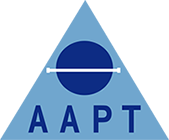News
Behind the Scenes: The Vital Role of External Assessors in APT Training
In conversation with trained AAPT external assessor Tania Fernandes RSciTech MAAPT
.jpg)
For trainees on the RSPH Level 3 Diploma in Healthcare Science (Anatomical Pathology Technology), external assessors play a crucial role in evaluating their practical skills in their home mortuaries.
Working in partnership with the North Tees training centre, these assessors ensure that trainees meet the high standards required in the field. But what exactly does the role entail, and could it be a fulfilling opportunity for experienced APTs?
AAPT Council Secretary Christian Burt spoke with Tania Fernandes RSciTech MAAPT, an external assessor, to explore the responsibilities, challenges, and rewards of the position.
The Role & Responsibilities
What does a typical onsite assessment involve?
A typical day includes meeting the trainee and their mentor, reviewing evidence from their portfolio, observing their practical work, and asking questions to assess their understanding. I also provide constructive feedback and complete necessary assessment paperwork.
How do you ensure trainees meet mortuary standards?
I cross-reference their work against qualification criteria, observe their techniques, and ask them to explain their processes. Key focus areas include safety, professionalism, and adherence to protocols while maintaining respect for the deceased.
The Assessment Process
What key skills do you assess in units like post-mortem assistance (APT3.6A) or mortuary operations (APT3.7)?
I evaluate communication, infection control, safe handling practices, correct PPE use, teamwork, and confidentiality. Trainees must demonstrate that they follow SOPs and understand the reasoning behind their actions.
How do you support trainees who fall short of the required standards?
I provide honest yet encouraging feedback, clearly outlining areas for improvement. Together with their mentor, we develop an action plan to help them progress.
Qualifications & Experience Needed
Why is post-qualification experience essential for assessors?
Hands-on experience ensures you can recognise best practices, guide trainees effectively, and ask insightful questions. It also means you’ve encountered diverse scenarios and understand what excellence looks like in the field.
How did the External Assessor Awareness training prepare you?
It clarified the assessor’s responsibilities, taught me how to give fair and consistent feedback, and helped me navigate the qualification framework confidently.
What was the practical skills assessment like?
It allowed me to demonstrate my expertise and practise applying assessment standards objectively—valuable preparation for real-world evaluations.
The Benefits & Impact
How has being an assessor contributed to your CPD and career?
It has sharpened my observation and communication skills, kept me updated on best practices, and deepened my understanding of APT development. The role has also boosted my confidence in leadership.
How do you feel you’re shaping the future of APTs?
By mentoring trainees, I’m helping to build a skilled and professional workforce. There’s immense satisfaction in seeing their growth and knowing I’ve contributed to their success.
Final Thoughts & Advice
What’s the most rewarding part of being an external assessor?
Watching trainees evolve into competent professionals—knowing my guidance played a part in their journey is incredibly fulfilling.
What advice would you give APTs considering this role?
Go for it! It’s a fantastic way to share your knowledge, support new talent, and grow professionally. You’ll find it both challenging and deeply rewarding.
Could you be the next external assessor shaping the future of APTs? If you’re an experienced professional passionate about mentoring the next generation, this role could be your next career milestone.
